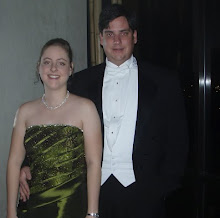Now that we've got the live rock and sand in the tank, I've been testing the water parameters. Once the water is stable, we'll slowly add fish and corals.
There are so many different things you can test for, and it's been very confusing trying to sort out what I should be testing for. Almost all references agree to test for pH, ammonia, nitrite, nitrate, calcium, and alkalinity (KH). However, some go a step further and suggest to test for magnesium, iodine, stontrium, and "other trace elements".
On the shelves at stores they sell all types of supplements for all the different elements. However, I'm afraid of adding supplements with out having test kits for each element, because from reading it seems that you can overdose the tank. The test kits for iodine and strontrium are expensive and don't include the supplements if you decide to add some. I asked around on reefcentral.com and everyone said that testing for and adding supplements like iodine and strontrium aren't needed for a healthy tank. They said calcium and alkalinity are the two most important for a healthy reef tank; they are the "building blocks" of a reef. They did say I might want to test for and add magnesium when I've got the tank stocked, but to stay away from other supplements, which are expensive and unnecessary.
There is a lot of debate about this issue, but I've decided not to worry about iodine, strontrium and other trace elements at this point. Perhaps when I have specialized corals or something, but not at this point.
They sent me some great links to learn more about marine chemistry:
http://reefkeeping.com/issues/2007-04/rhf/index.php
http://www.advancedaquarist.com/issues/feb2003/chem.htm
http://home.comcast.net/~jdieck1/chem_calc3.html
Here's what I'm keeping track of. I've been testing daily because I want to know when the cycling of the live rock begins, but once it's established I'll test for most things weekly.
Temperature: 77 degrees Fahrenheit. From reading, this is a good temp for a reef tank, as long as it stays consistent.
Salinity: My hydrometer reads 1.025, which is a good level, but hydrometers aren't the most accurate gauges. We will have to get a refractometer one of these days.
pH: This can fluctuate due to fish waste and uneaten food. The water in the tank has been holding steady at 8.4. A pH reading of 8.2 - 8.4 is ideal, just as long as it's consistent.
Ammonia: Fish poop and decaying organic matter can increase ammonia levels in the tank, which is bad for fish. So far, so good. The tank has not tested positive for ammonia yet, but that will change when things on the live rock start dying and the rocks start curing.
Nitrite: Bacteria in the tank turn the ammonia into nitrite, which is harmful for fish. No ammonia so far, so no nitrite.
Nitrate: Bacteria in the tank turn ammonia and nitrite into nitrate. Nitrate is bad for fish and can stimulate algal blooms. So far no ammonia or nitrite, so no nitrate.
Calcium: This is one of the essential elements of a healthy reef tank. Reef organisms, like corals and invertebrates, use calcium to build their calcium carbonate skeleton. They use up the calcium in the water over time, so it needs to be replenished. Calcium can be added with special reef salt, but I used just regular tank salt which didn't have a good level of calcium. My tests are reading around 300 ppm. It should be between 400 and 500 ppm.
Alkalinity (KH): In addition to calcium, the growth of coral also depends on alkalinity (also called KH or carbonate hardness). Carbonate hardness also helps control pH. My tests are reading around 10 dKH. A healthy range is 8 -12, but many reef experts have told me that 10 dKH is a little high.
Phosphate: Phosphates can drop calcium and magnesium levels and lead to algal blooms, since algae feeds off phosphates. So far, my tests haven't detected any.
So now that I know I need to bring up my calcium level, and bring down my alkalinity, I need to get some supplements. People have suggested two part systems (one for calcium and one for alkalinity) like B-ionic.
Once I do this, my purple coralline algae and little tube coral should do well.
Saturday, January 2, 2010
Subscribe to:
Post Comments (Atom)

No comments:
Post a Comment